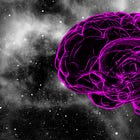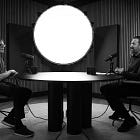The Christian Presuppositions of Science: 1-Minute Case
Are the assumptions behind science more compatible with theism than atheism?

The presuppositions of science are more consistent with theism than atheism or agnosticism:
Rational intelligibility of the universe
To practise science it needs to be assumed the universe can be understood and discovered. Would you expect this more if the universe stemmed from an Intelligent Mind or from an accident?
Applicability of logic and mathematics
Logic and mathematics are not proven by science but presupposed. Laws of logic and mathematics are immaterial, universal, transcendent and unchanging. Does it make more sense for logic and mathematics to stem from a transcendent immaterial mind or a localised, material, and unintentional process? As Professor J Warner Wallace explains, “The transcendent Laws of Logic are best accounted for by the existence of a transcendent, logical, perfect and unchanging God.”
Uniformity principle
The present is the key to the past. This makes more sense if the universe stems from an orderly and intentional Source.
Relying on cognitive faculties
If you evolve for survival not truth, why think you can discern truth? If your ultimate source had no intentions or purpose, why think you can have any purpose or intentions in practising science? You’re ultimately a bag of meat fizzing to chemical reactions under a materialist worldview.
History of the scientific method
Perhaps this is why in her book, Confronting Christianity, McLaughlin outlines how the empirical and methodological foundations of the scientific method were laid by two Franciscan friars, Roger Bacon and William of Ockham. Christianity is not anti-science.
Read more:
Find us on Medium.com
Or X
https://twitter.com/StreetTheologn















This article is right up my alley so thank you. I appreciate how you laid that out and any recommended reading would be appreciated.
One thing I do have issue with is that many Christian apologists accept modern scientific theory like it can't be contested. Science is evolving and there are other theories that may make more sense given the facts. I guess what I am saying is why are Christians using modern theoretical models of science in apologetic defense of God?
I prefer the method of using philosophy and logic such as laid out in your article.
Good summary. A few thoughts:
1. On the need to assume intelligibility: is it possible that there is rather an original discovery of intelligibility rather than an original assumption?
2. On the applicability of logic: this seems similar to the previous argument, but taking the logic inflection, is this argument based on the idea that logic is equivalent to good reasoning? This is formally disputed, of course.
3. On uniformity: this seems like an application of the intelligibility criterion. Does it suppose that chaos cannot produce what looks like order? What place then for tohu va-Vohu as a starting point for creation?
4. On the purpose of a bag of meat: perhaps a bag of meat performs physical relations with its environment that are proper to a bag of meat because it is a bag of meat? Why must there be anything more to it? Thinking, believing, wondering, etc. is what brains do.
5. Christianity is definitely not anti-science. But truth be told, it seems to have changed a great deal so as not to be, no?